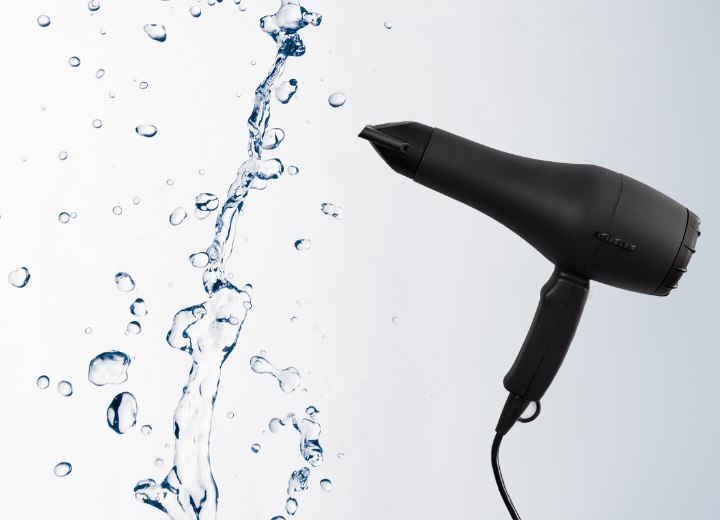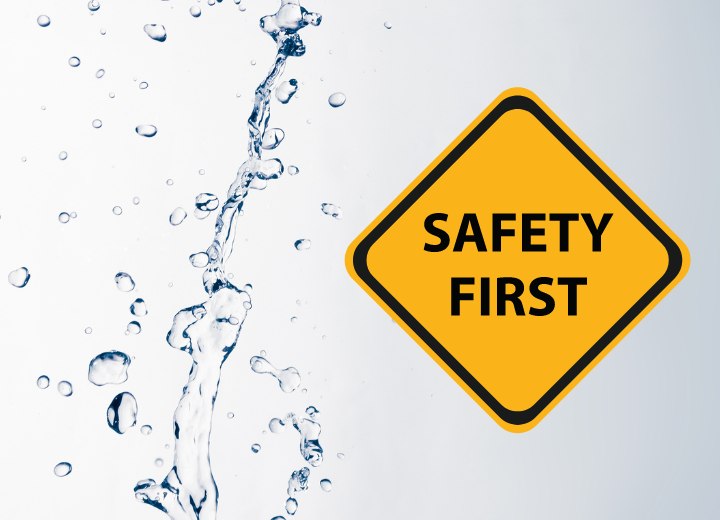Blow Dryers and Water

Q: I told my seven-year-old son that we need to be careful when using a hair dryer around water, like in the bathroom, because it’s dangerous. Naturally, he asked "why," as he always wants to know the details. I’m not very familiar with the technical side of things, so how can I explain why blow dryers and water don’t mix?
A: Most of us use blow dryers without giving much thought to how they work or why we need to be cautious with them around water. While they’re useful, using them near water can be extremely dangerous.
But here’s the important part: Hair dryers, like many other devices in your house, need electricity to work. When you plug one in, electricity flows from the outlet through wires to power it. You can think of electricity like invisible fuel that makes the hair dryer run. But here’s the tricky part—while you can’t see electricity, you can definitely feel it if it ever touches your body.
Now, here’s why electricity and water are a bad mix. Electricity always tries to find the easiest path to the ground. Under normal conditions, it flows safely through wires, which are coated in protective material to keep it from escaping. But water is a great conductor of electricity, meaning electricity can move through it easily—just like it moves through wires.
If a blow dryer falls into water while it’s plugged in, the electricity inside the blow dryer can escape and travel through the water. And if you touch that water, the electricity can flow into your body, causing an electric shock. Depending on how much electricity is involved, this shock could range from a mild tingle to something much more serious, like burns, muscle damage, or even stopping your heart.

Bathrooms are full of water—sinks, bathtubs, showers, and even puddles on the floor—which increases the chance that an electrical device like a blow dryer could come into contact with water. Imagine drying your hair after a shower and accidentally dropping the blow dryer into a sink full of water. If it’s still plugged in, the electricity will spread through the water. If you reach in to grab the blow dryer, the electricity could pass through the water and into your body, leading to a dangerous shock.
Electricity is amazing and powers so many things we use every day, but it needs to be treated with respect, especially around water. Here are some simple rules to stay safe:
1. Keep blow dryers away from water. Never use a blow dryer near a sink, bathtub, or shower where water could splash onto it. If possible, use the hair dryer in a dry place, like your bedroom, instead of the bathroom.
2. Unplug the blow dryer when you’re done. Always unplug the blow dryer after using it, especially if it’s near water. This prevents electricity from flowing into the blow dryer, which reduces the risk of accidents.
3. Dry your hands before touching any electrical devices. Water on your hands can conduct electricity just like water in a sink or tub, so make sure your hands are completely dry before using a hairdryer or any other electrical appliance.
4. Be careful where you place the blow dryer. Don’t leave it on the edge of the sink or bathtub where it could easily fall in. Keep it on a dry, stable surface far from any water sources.
5. Take extra safety measures. Make sure your bathroom outlets have a ground fault circuit interrupter. Ask an electrician to check! A ground fault circuit interrupter detects when electricity is flowing in an unexpected path—like through water—and automatically shuts off the power. This is required by law in many countries for outlets in bathrooms, kitchens, and outdoor areas.
I hope this helps you explain things to your son—and maybe you learned something new, too!
©Hairfinder.com